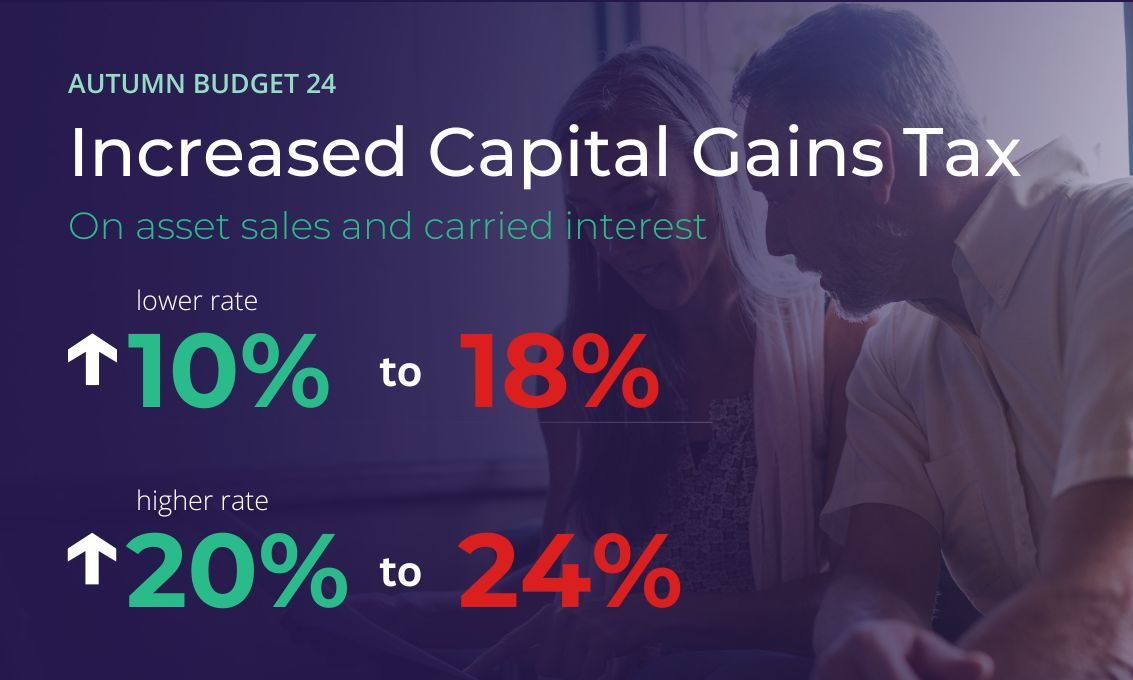
Planning & protection

The Chancellor, Rachel Reeves, announced the government is to increase the rate of employer National Insurance Contributions (NICs) by 1.2 percentage points to 15% from 6 April 2025, which will raise £25bn in tax. This will mean employers will have to pay 15p in NIC for every £1 paid to an employee. In addition, the NIC per-employee secondary threshold at which employers start to pay NI will be reduced from £9,100 per year to £5,000 per year.
The Chancellor said she was ‘taking the difficult decision to increase the rate to repair the public finances and help raise the revenue required to increase funding for public services.’
Autumn Budget 2024Download our full guide to the Autumn Budget 2024 as we explore the spending plans set by the Chancellor, Rachel Reeves. |
 |
While she recognised this was an additional cost to businesses, the Chancellor also said, ‘Successful businesses depend on successful schools, and healthy businesses depend on a healthy NHS.’ However, the Chancellor announced that the Employment Allowance would be raised, which she said would mean more small employers pay no NI, and around one million would pay the same or less. The allowance will increase from £5,000 to £10,500.
The government will also expand the Employment Allowance by removing the £100,000 eligibility threshold, to simplify and reform employer NICs so that all eligible employers will benefit.
With over 1,250 local advisers and staff, we’re here to help you address any financial needs arising from the Autumn Budget – from investment advice to retirement planning. Simply provide a few details through our quick and easy online tool, and we’ll match you with the ideal adviser.
Alternatively, click below to download our comprehensive guide to the Autumn Budget.
| Match me to an adviser | Download full guide to the Autumn Budget |
THIS ARTICLE DOES NOT CONSTITUTE TAX OR LEGAL ADVICE AND SHOULD NOT BE RELIED UPON AS SUCH. TAX TREATMENT DEPENDS ON THE INDIVIDUAL CIRCUMSTANCES OF EACH CLIENT AND MAY BE SUBJECT TO CHANGE IN THE FUTURE. FOR GUIDANCE, SEEK PROFESSIONAL ADVICE.
A PENSION IS A LONG-TERM INVESTMENT NOT NORMALLY ACCESSIBLE UNTIL AGE 55 (57 FROM APRIL 2028 UNLESS THE PLAN HAS A PROTECTED PENSION AGE).
THE VALUE OF YOUR INVESTMENTS (AND ANY INCOME FROM THEM) CAN GO DOWN AS WELL AS UP, WHICH WOULD HAVE AN IMPACT ON THE LEVEL OF PENSION BENEFITS AVAILABLE.
YOUR PENSION INCOME COULD ALSO BE AFFECTED BY THE INTEREST RATES AT THE TIME YOU TAKE YOUR BENEFITS.